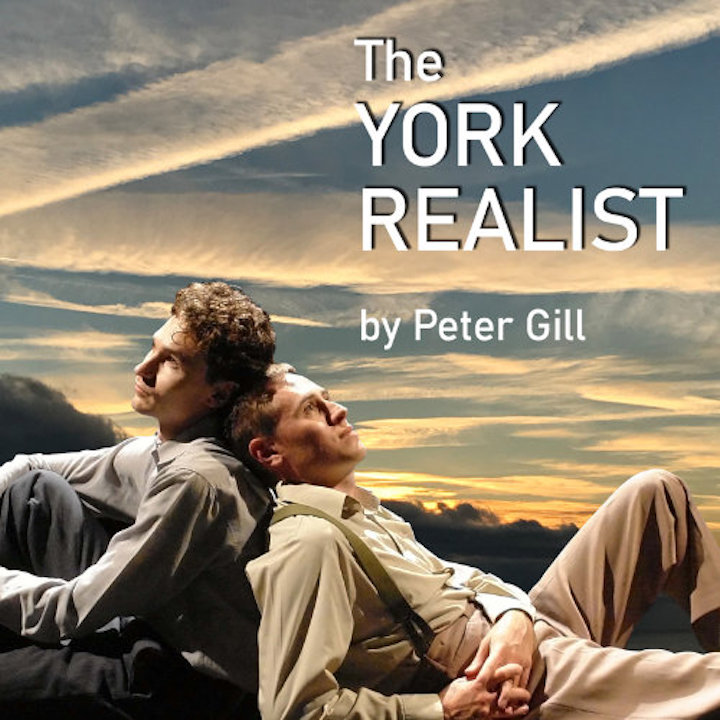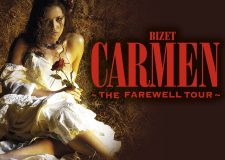THE YORK REALIST

Peter Gill’s’s 2001 play is the rarest of dramas. A queer story that is not solely grounded in the horror of oppressive attitudes but actually explores at its heart a love affair. Of course in doing so it has to explore the attitudes of the time, that time being the early 1960s, but the main theme is the growing relationship between the two main characters, George and John, thrown together by the production of the York Mystery Plays. George is a young farmer who lives with his mother in a remote Yorkshire farm cottage. John is the visiting assistant director from London. Their backgrounds could not be more different, John able to enjoy the more relaxed, yet still taboo and illegal attitudes of the capital. George lives in a repressed rural society, but very soon you discover that he is not the seduced party but the seducer. It’s a clever twist in expectations that says much about the nature of sexuality. And what a joy that is in a world where so often, gay men in particular, are portrayed as predators. But this is love, that love that Wilde said dare not speak its name.
Around the lovers are family and friends. George’s mother is beautifully described by Nikki Dunsford, the calm, suffers no fools matriarchal widow. His sister Barbara is the worldly, slightly brittle modern woman, driven, seeking a better life and very aware. Amelia Thurley plays the part with exacting precision, getting every nuance from every word and revealing a woman who is not only aware but understanding. Her husband Arthur is every inch the alpha male Yorkshireman, strong and traditional… or is he? Lewis Todhunter embodies the role with a brusque masculinity and an obvious acknowledgment of the power of Yorkshire womanhood, one moment he is dominant and then compliant.
Family friend Doreen is the gentle neighbour, chapel bred, kind and constant and definitely seeking a future with George. Sophie Bloor’s portrayal of a woman chasing an unachievable dream is steeped in sadness. Many of us will have met or know this character in real life and this performance is touchingly tragic. Barbara and Arthur’s son Jack represents a future, a boy at that point in his life and at that point in history, where a young person was suddenly being presented with multiple opportunities, no longer expected to stay at the farm but perhaps finding life further afield, York maybe or even Harrogate… Bertie Hawes gives a bright eyed portrayal of a future filled with potential, even if for him that is the army, but it may be his route for escape.
John, the more worldly Londoner, is captured by Chris Church. But in a twist that is so delightful, John is not the driving element in the love affair, he is gentle and kind, he is amazed by George’s matter of fact approach to sexuality and sex, and this is very much at the heart of the play. The fact that gay love is not the exclusive domain of the urban elite but exists everywhere, in all society.
George is played here by Will Mytum. It’s not any easy role to get right. Finding that balance between the rural and traditional Yorkshire farmer and the young and very aware queer man requires real talent. There needs to be strength, a sturdy reference and reverence for traditions yet, at the same time, an openness and gentle element that reveals the real heart of the man. It’s an exceptional performance, powerful one moment then soft and vulnerable.
Director Claire Lewis has wrung from this talented ensemble an evening of powerful and thought provoking theatre that does not hang on terrible trauma and incident, no police oppression or homophobic attacks, just a beautiful love story that makes a real statement that queer love is real love.
Finally a word for the staging. The set if filled with beautifully observed detail, from flagged floor, period crockery down to tiny details like a curtain beneath the sink. Michael Folkard gets it so right as does Pat Boxall with excellent costumes and Rich Biennerhassett whose hair and make-up transported me back to my own 1960’s childhood. On every level this is a first class production of a first class play.
Andrew Kay
New Venture Theatre
4 November
Rating:





















